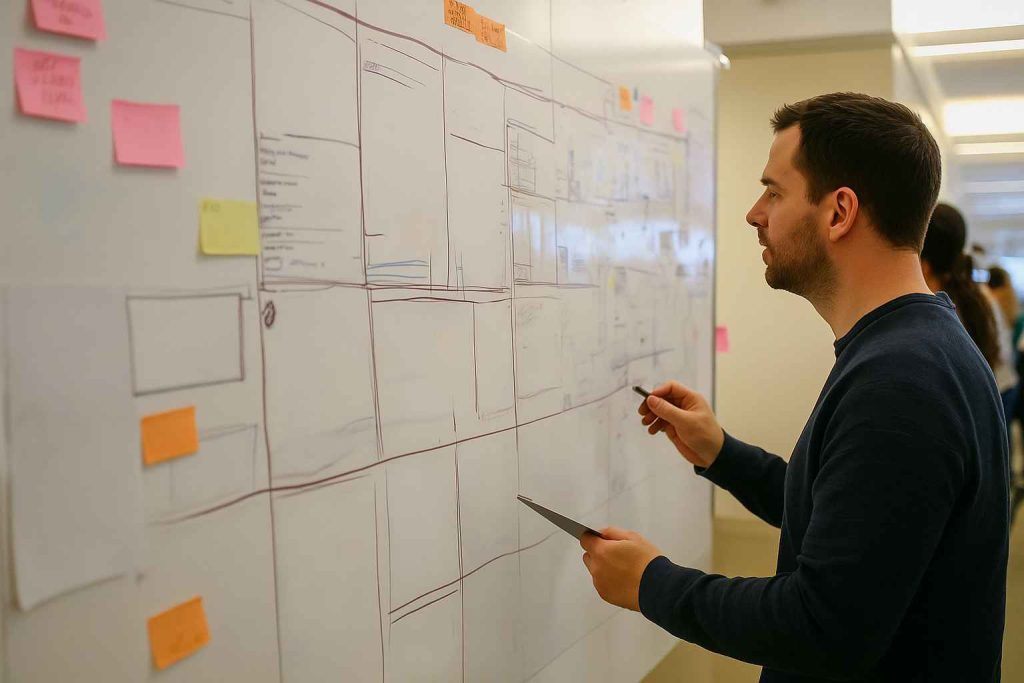Ever sat through an interview, thought you found the perfect candidate, only to realize later that things weren’t working out? We’ve all been there. The good news is, using the right candidate assessments can dramatically reduce those hiring mishaps.
Today, I’ll walk you through some real-world candidate assessment examples, so you can confidently pick the right tools and strategies to hire exceptional candidates consistently.
Before we start, if you’re new to candidate assessments or want to understand the basics better, check out our comprehensive guide on the Candidate Assessment Test.
Let’s dive in!
Why Use Candidate Assessments?
Candidate assessments go beyond traditional interviews and resumes—they objectively measure skills, abilities, behaviors, and cultural fit. Here’s a quick recap of why this matters:
- Objective decision-making: Reduces hiring biases.
- Better job performance: Predicts future performance more accurately.
- Improved retention rates: Candidates who fit well tend to stay longer.
Learn more about the importance of candidate assessment to truly appreciate its value.
Now, let’s look at some concrete candidate assessment examples.
Candidate Assessment Examples for Different Roles

Each job role requires specific assessments. Here are examples categorized by job type:
1. Sales Roles
For sales positions, you want candidates who are persuasive, resilient, and excellent communicators.
Assessment Examples:
- Role-play exercise: Simulate a sales call or presentation scenario.
- Personality Tests: Identify traits like assertiveness, empathy, and confidence.
- Structured Interviews: Questions focused on dealing with rejection, targets, and teamwork.
Sample Sales Role Assessment Table:
| Assessment Method | Evaluates | Example Questions |
| Role-play scenarios | Sales skills, adaptability | “How would you handle an objection about price?” |
| Personality assessment | Communication, resilience | Situational judgment scenarios |
| Structured interview | Past experiences | “Describe a difficult sales experience.” |
2. Technical or IT Roles
For technical roles, assessments focus heavily on specific technical competencies and problem-solving abilities.
Assessment Examples:
- Technical Skills Test: Programming tests, coding challenges.
- Problem-solving tasks: Evaluate analytical thinking and creativity.
| Method | Purpose | Example Task |
| Coding tests | Technical skill | “Complete this coding challenge in JavaScript.” |
| Technical problem-solving | Critical thinking, innovation | “Solve this server downtime scenario.” |
3. Managerial Roles
Managerial roles demand strong leadership, organizational skills, and problem-solving abilities.
Assessment Examples:
| Assessment Type | Evaluates | Example Questions |
| Behavioral interviews | Leadership, conflict resolution | “Describe a situation where you motivated a struggling team.” |
| Situational judgment tests | Decision-making, leadership | “What would you do if team performance dropped?” |
To create your own clear assessment structure, check out our post on candidate assessment framework.
Real-Life Candidate Assessment Scenario: A Quick Example

Imagine you’re hiring a Digital Marketing Specialist. Here’s a simple assessment plan:
- Resume Screening: Look for relevant experience (social media, SEO, analytics).
- Skill Test: Ask candidates to draft a brief digital marketing campaign.
- Behavioral Assessment: “Tell me about a campaign you led. What were the results?”
- Cultural Fit Interview: Assess alignment with company values.
- Grading and Final Decision: Rank and select using established grading criteria (see our detailed candidate assessment and grading policy and procedure).
Candidate Assessment Methods and When to Use Them
To further clarify, here’s a simple table summarizing which assessments to use depending on your hiring goal:
| Assessment Method | Ideal For | When to Use? |
| Skill tests | Evaluating practical abilities | Technical roles (e.g., developers, designers) |
| Personality tests | Understanding cultural fit | Customer-facing roles, managers |
| Behavioral interviews | Evaluating real-life behavior | Most roles, especially management and leadership |
| Situational tests | Problem-solving skills | Roles involving critical decision-making |
For more details, explore our in-depth post on how to assess candidates for a job.
Common Candidate Assessment Methods Compared

Here’s a quick comparison of common assessment methods to help you choose wisely:
| Method | Pros | Cons | Best For |
| Skills assessments | Objective, clear data | Time-consuming setup | Technical & skilled roles |
| Structured interviews | Reduces biases, consistent | Limited spontaneous insight | All roles |
| Personality assessments | Insightful about culture fit | Less predictive for skills | Managerial, customer roles |
| Behavioral assessments | Predicts future performance | Interpretation requires skill | Leadership & managerial roles |
Common Mistakes to Avoid in Candidate Assessments
Even the best-intentioned hiring managers make mistakes. Here’s how to avoid common pitfalls:
| Mistake | Solution |
| Using only one assessment type | Combine multiple methods for reliability |
| Ignoring soft skills | Always include soft skill evaluations |
| Skipping structured methods | Standardize your assessment approach |
Candidate Assessment Checklist
Here’s a quick checklist you can use during your assessment process:
- ✅ Clearly defined job criteria
- ✅ Structured interviews
- ✅ Objective skill tests
- ✅ Behavioral assessments
- ✅ Cultural fit evaluations
- ✅ Clear scoring policy
- ✅ Consistent application across candidates
For a handy reference, download our comprehensive Candidate Assessment PDF.
Final Thoughts: Make Better Hiring Decisions Today
By using practical candidate assessment examples, you can dramatically improve your hiring decisions. Structured, objective, and thoughtful assessments help you select candidates who truly add value to your team and company culture.
Ready to put these strategies into practice? Start by clearly defining your candidate assessment process, and you’ll soon be hiring confidently every time.
Remember, better hiring decisions start with better assessments. Let’s make every hire count!


